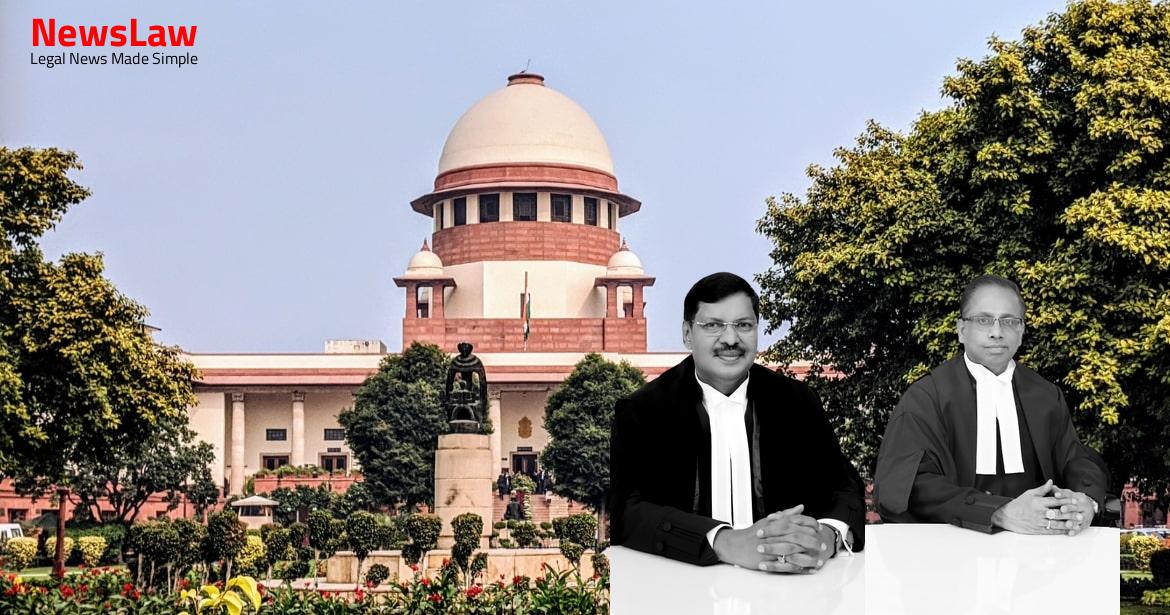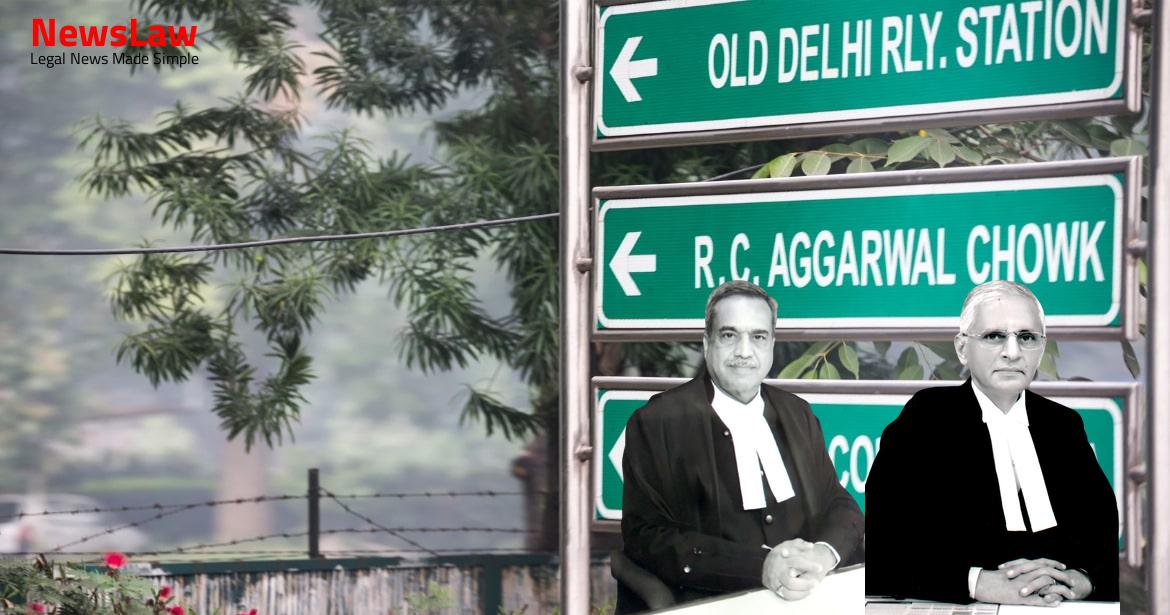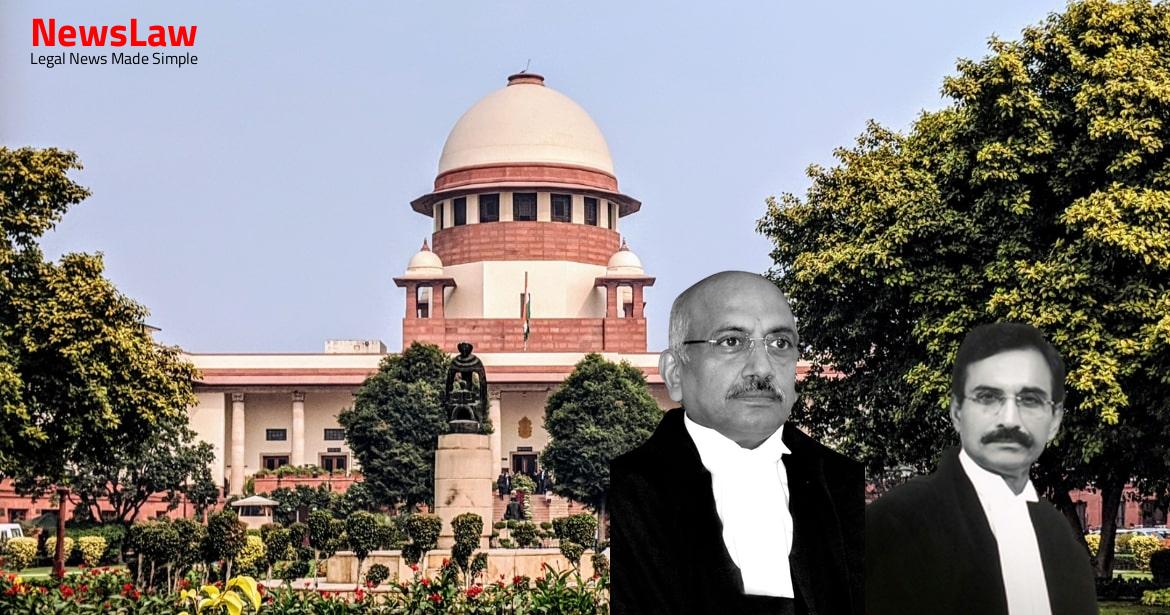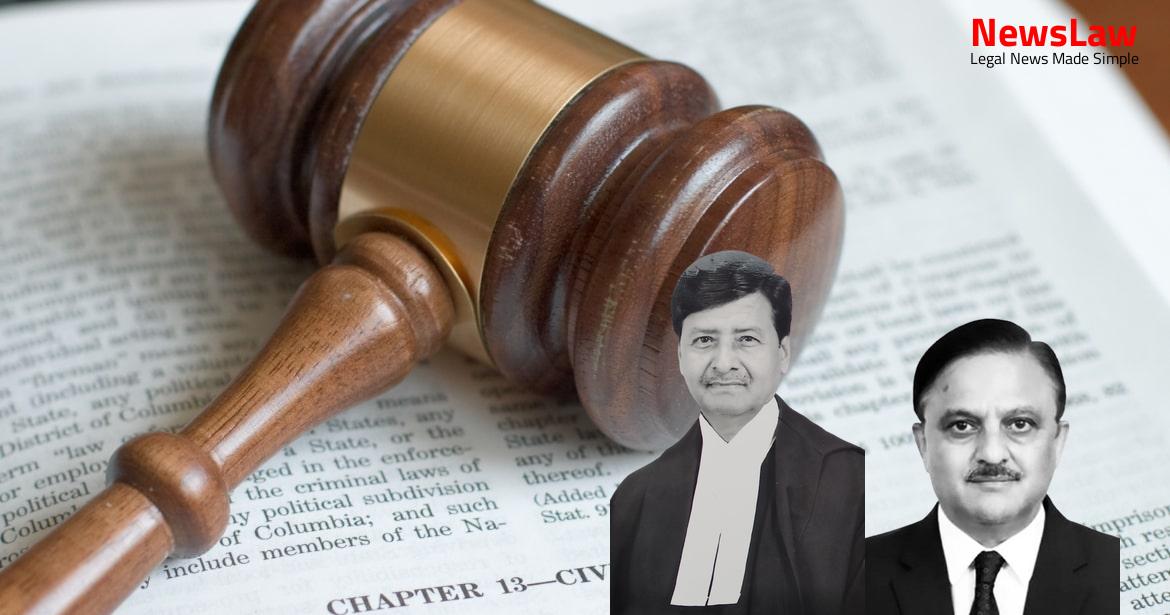In a landmark judgment by the Supreme Court of India, the issue of equal treatment in Teacher Grade III recruitment was addressed. The case highlighted discrepancies in eligibility criteria for candidates admitted to the Shiksha Shastri class of 2009-10. The judgment, benefiting the appellant, emphasized fairness and consistency in the recruitment process. Stay tuned for more insights. #SupremeCourt #LegalJudgment #EqualTreatment
Facts
- The appellant fulfilled the criteria and obtained admission in the second round of counseling between 26.08.2009 and 28.08.2009.
- The appellant applied for the post of Teacher Grade III Level II in the Scheduled Area (TSP) under an advertisement issued by the respondent authorities on 11.09.2017.
- The eligibility for admission was 45% marks at the graduation level but later increased to 50% for candidates admitted after a certain date.
- Some students admitted after the first round of counseling with less than 50% marks in graduation were eligible for appointment as Teacher Grade-III, Level-II, while the appellant was not eligible, even though from the same class and under the same admission process.
- Counseling for college allotment based on merit cum-preference was held on 04.07.2009, and the appellant was allotted a college for pursuing the Shiksha Shastri course 2009-10 on 21.08.2009.
- An interim order was passed directing the respondents to accord appointment to the appellant on the post of Teacher Grade-III.
- The appellant’s case was considered in light of the NCTE notifications of 2010 and 2011.
- The requirement of prescribed percentage of marks in graduation was a key factor in determining eligibility for appointment.
- The Court found the situation of unequal treatment between students of Shiksha Shastri class of 2009-10 to be unconstitutional.
- The appellant’s eligibility for Teacher Grade-III position was affirmed based on his competitive merit and fulfillment of other required eligibility criteria.
Also Read: Equal Treatment in Admission Criteria: A Supreme Court Ruling
Arguments
- The appellants in Neeraj Kumar Rai case relied on judgments from Rajasthan and Uttarakhand High Courts.
- They argued that if admission to the B.Ed. course was before the NCTE’s minimum qualifying marks were prescribed, then the minimum marks in graduation should not be insisted upon.
- The Additional Solicitor General agreed that the appellants should be treated on par with the relief granted by the Rajasthan and Uttarakhand High Courts.
- In the State of Rajasthan vs Ankul Singhal case, the Division Bench dismissed the State’s appeal regarding admission initiated in April 2009.
Also Read: Landmark Judgment in Prem Prakash Bail Application Case
Analysis
- The appellant secured admission in the Bachelor of Education (B.Ed) course on 23.10.2009 by depositing the fee.
- The appellant belonged to the reserved category with a qualifying percentage requirement of 40% marks in graduation.
- The admission of the appellant related back to the date of admission after the first round of counseling before 31.08.2009.
- The appellant’s name did not appear in the provisional list of selected candidates despite securing 44.58% marks, higher than the cut-off.
- The appellant’s case was compared to Rakesh Gaur who had taken admission on 05.11.2009, indicating a similar situation.
- The Division Bench was criticized for applying Dinesh Chandra Damor case instead of Ankul Singhal and Rakesh Gaur cases to the facts of this case.
- An absurd classification and discrimination among homogenous groups of students admitted in 2009-10 academic session was highlighted.
- The appellant, under an interim order, was appointed and subsequent cancellation of his appointment was mentioned in the analysis.
- Rakesh Gaur (supra) was given relief based on similar reasoning.
- The principle of ‘what is sauce for the goose should be sauce for the gander’ applies here.
- The case of Rakesh Gaur (supra) was identically situated with the case of the appellant.
Also Read: Unified Sureties: Balancing Legal Requirements and Practical Challenges
Decision
- Fitment of pay shall be granted to the appellant.
- The impugned judgment of the High Court dated 04.2022 in D.B. Spl. Appl. Writ No 997 of 2019 is set aside.
- The appellant’s appointment given pursuant to the interim order of the Division Bench dated 23.10.2021 is to be treated as a regular appointment.
- Consequential benefits are to be granted to the appellant after reinstatement.
- The appellant shall not be entitled to any back wages except for the period actually worked.
- Necessary orders to be passed within four weeks from today.
- No costs to be awarded.
Case Title: MANILAL Vs. THE STATE OF RAJASTHAN (2024 INSC 675)
Case Number: C.A. No.-010440-010440 – 2024



